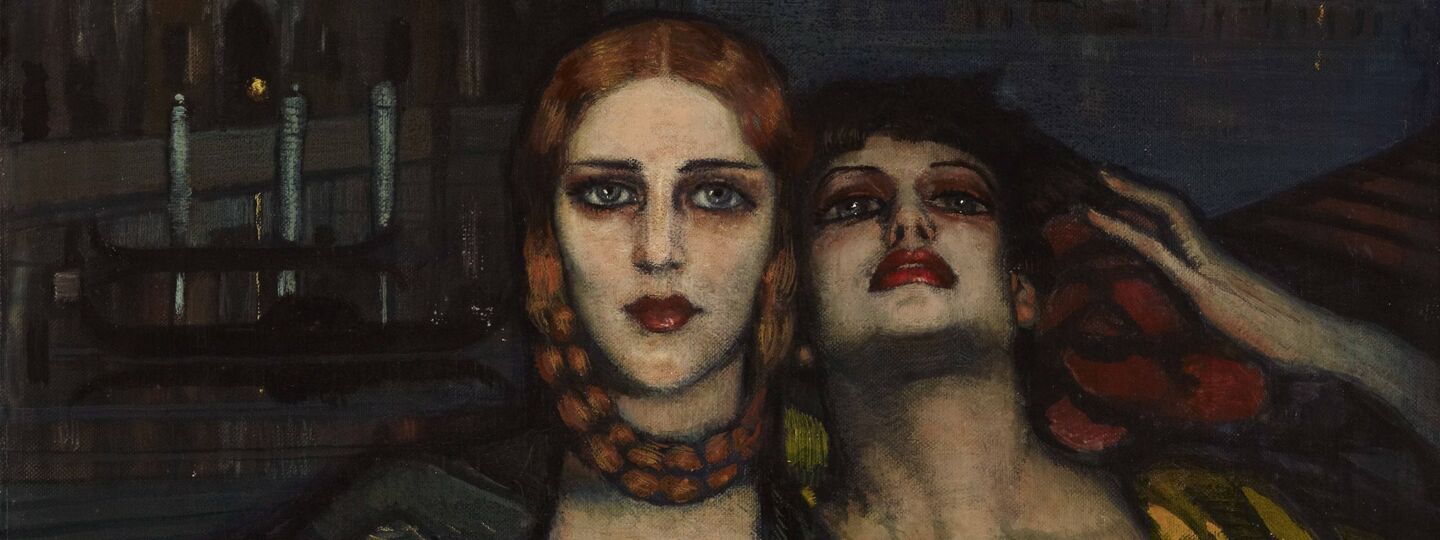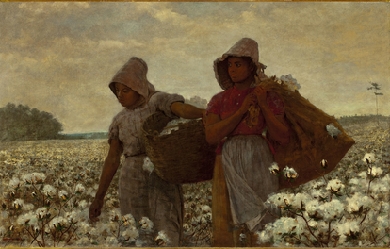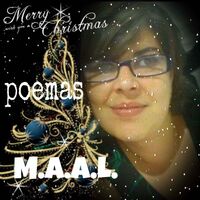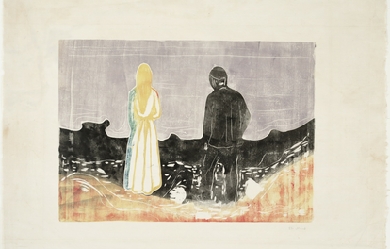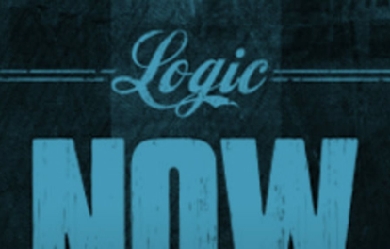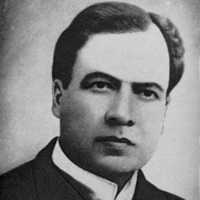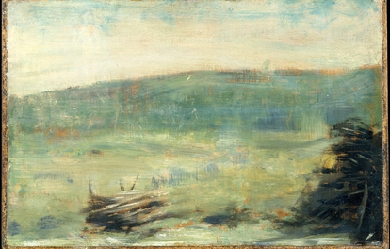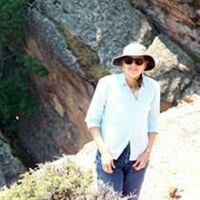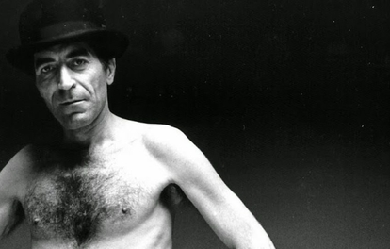
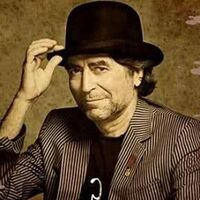
Joaquín Ramón Martínez Sabina (Úbeda, Jaén, 12 de febrero de 1949), conocido artísticamente como Joaquín Sabina, es un cantautor y poeta español de éxito en países de habla hispana. Ha publicado catorce discos de estudio, cuatro en directo y tres recopilatorios y colaborado con distintos artistas cantando dúos y realizando otras colaboraciones. También compone para otros artistas como Ana Belén o Miguel Ríos entre otros.

“Who am I? I'm a poet. What do I do? I write. And how do I live? I live.” –Rodolpho, in Puccini's La Bohème Before Passion Becomes Philosophy Such Beauty Such Fair Beauty That We Should Know In Them And Call Them Ours… The Rose, Symbol of Passion. The embodiment of life. Its scent enchanting... Its petals enticing... In each silky-smooth... fragile fold... Images of past, present, and future Are suggestively rendered And ready to be found. The Rose, Symbol of Philosophy The representation of opposites. A source of profound beauty And at the same time, If one fails to grasp it properly, A source of prolific pain And resonant regret. This Blog is dedicated to the Passion of Life Before the Philosophy of tomorrow gives it Its meaning. The yearnings... the longings... The desirous aching found Within each unrestricted beat Of a man's heart. This is my story and these are my songs Now and for all time WELCOME TO THE PLAYGROUND OF MY MIND…
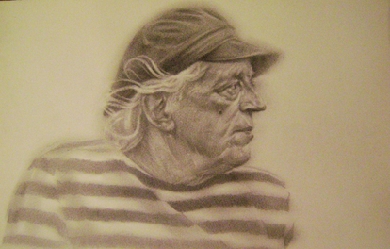
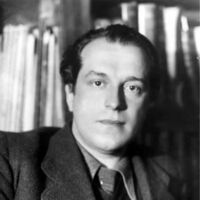
Rafael Alberti Merello (Puerto de Santa María, 1902 - 1999) Poeta español, miembro de la Generación del 27. Sus padres pertenecían a familias de origen italiano asentadas en la región y dedicadas al negocio vinícola. Las frecuentes ausencias del padre por razones de trabajo le permitieron crecer libre de toda tutela, correteando por las dunas y las salinas a orillas del mar en compañía de su fiel perra Centella. Una infancia despreocupada, abierta al sol y a la luz, que se ensombrecerá cuando tenga que ingresar en el colegio San Luis Gonzaga de El Puerto, dirigido por los jesuitas de una forma estrictamente tradicional.
▪️▪️▪️▪️▪️▪️▪️▪️▪️▪️ ▪️▪️▪️▪️▪️▪️▪️▪️ ▪️▪️▪️▪️▪️▪️ ▪️▪️▪️▪️ ▪️▪️▪️ ▪️▪️ ▪️ Finding my way with writing and poetry. 🪶The world makes more sense with poetry. Connect with me on: Tumblr: 1introvertedsage My Poetic Side: Introverted Sage All Poetry: Introverted Sage Substack: Introverted Sage
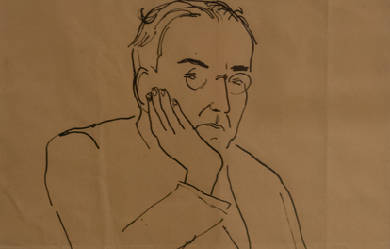
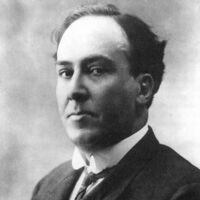
Antonio Machado Ruiz (Sevilla, 26 de julio de 1875 – Colliure, Francia, 22 de febrero de 1939) fue un poeta español, miembro tardío de la Generación del 98 y uno de sus miembros más representativos. Su obra inicial suele inscribirse en el movimiento literario denominado Modernismo. Fue el segundo de cinco hermanos de una familia liberal; el mayor de ellos, Manuel, trabajó junto a Antonio en varias obras.
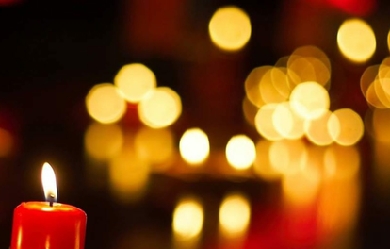

[b.] September 25, 1974, Tempe, AZ; [p.] Mr. Phil and Barbara K. Ransopher; [ed.] Bachelor of Arts in English (Language and Lit.); [occ.] library assistant, writer, editor; [memb.] Yahoo Groups: Appreciating Poetry (owner), Erotica Gallery (owner), Ex BBC Poetry Group (moderator), AATNAANPT (An All Totally New An All New Poetry Thread), Adult Amatuer (sic) Writers Emporium; [hon.] November 19, 2010 Poetic Skies Poem Of The Week (Her Love Has A Cold Wet Nose), May 15, 2015, First weekly winner for Fortune Poets group A Soldier's Fortune, 2015 Poet of the year for Fortune Poets; [pers.] I write what I see in my mind, what I feel in my heart, and what I know in my soul; [a.] Garland, TX
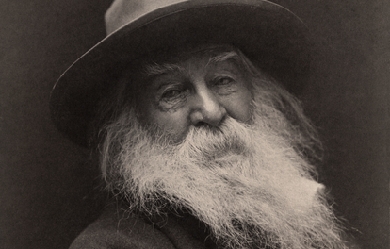
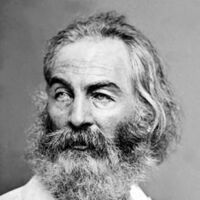
Walter Whitman (May 31, 1819 – March 26, 1892) was an American poet, essayist and journalist. A humanist, he was a part of the transition between transcendentalism and realism, incorporating both views in his works. Whitman is among the most influential poets in the American canon, often called the father of free verse. His work was controversial in his time, particularly his 1855 poetry collection Leaves of Grass, which was described as obscene for its overt sensuality.
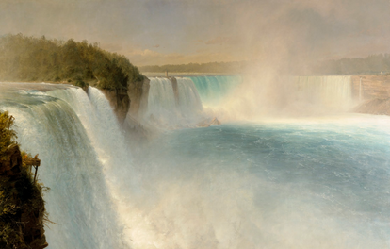
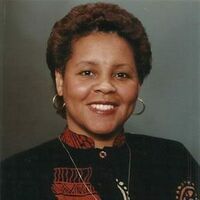
I am an American Patriot, a Believer, and a lover of God and Country. I am a widow, a mother of five children ❤️ and five grandchildren. ❤️ I’m very proud, and honored to have borne such loving, talented and hard working children. Being a Mother was my destiny. Being a writer is also part of my destiny that I truly thank God for. It’s a gift from God It was after my children were grown and left home that I became serious about writing. I have written a book titled (American Poetry and Music) that has been published by Christian Faith Publishing. Which can be purchased on Amazon.com, Barnes and Noble, and Thrift Books.com I get my inspiration from the Creator, and I go under the heading of H.S.I. Which stands for (Holy Spirit Inspiration) Some of these poems on Poeticous.com appear in my book . I am grateful for them allowing me to publish my poems on this site also. I’ve come to love this site very much. All Poems, and Original Music Videos on this site are my own original compositions, and are covered under U.S.Copyright laws.© 2024. For more info -You can find me on (Youtube) and (Facebook). Email no longer public, but if you message me from Facebook or here on Poeticous I’ll give it to you privately. No copyright infringement intended with any Pictures or videos used on these poetry pages. Some videos of artist I enjoy were obtained from Youtube, and some pictures are from Public Domain sites. Mostly they are the property of Poeticous I do not claim rights for any works except my own Original Work. Thank you, Charlotte B. Williams
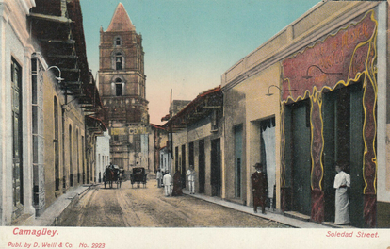
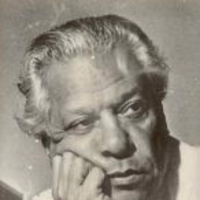
Nicolás Cristóbal Guillén Batista (Camagüey, 1902 - La Habana, 1989) Poeta cubano, considerado el máximo representante de la llamada poesía negra centroamericana, y poeta nacional de la isla por su obra ligada a la cultura afrocubana. Nicolas Guillén cursó un año de derecho en La Habana, antes de abandonar la universidad y volver a su ciudad donde trabajó como tipógrafo y se dedicó al periodismo en la redacción de El Camagüeyano, en cuyas páginas inició también su actividad literaria.
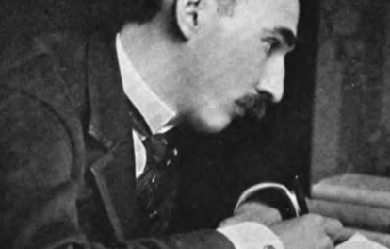
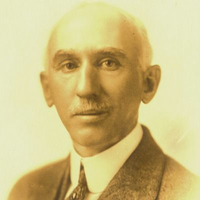
Madison Julius Cawein (March 23, 1865 – December 8, 1914) was a poet from Louisville, Kentucky. He was the fifth child of William and Christiana (Stelsly) Cawein. His father made patent medicines from herbs thus, as a child, Cawein became acquainted with and developed a love for local nature.
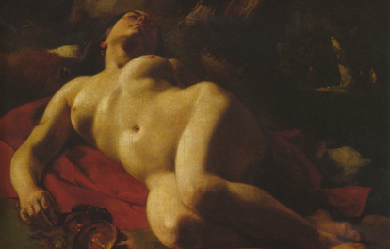
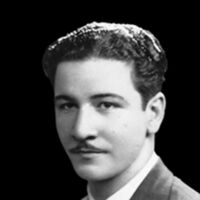
José Ángel Buesa (Cienfuegos, Cuba 1910-Santo Domingo, República Dominicana, 1982) fue un poeta romántico con un claro tono de melancolía a través de toda su obra poética, que es primordialmente elegíaca. Se le ha llamado el “poeta enamorado”. Ha sido considerado como el más popular de los poetas en la Cuba de su época. Su popularidad se debía en gran parte a la claridad y profunda sensibilidad de su obra.
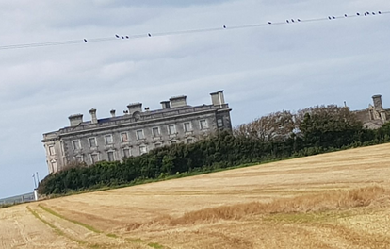
Born and raised in the subs of Dublin city, Ireland. I'm a 33year old tarot reader witch bitch. I wrote under a ghost name (alexis faye) as frankly I love poetry mine isn't viewed by anyone so i wanted to share it, and got the courage to do so when I stopped relying on other people and started to carve my own path. I write mostly depression riddled poetry. Some are about my past including being sexual assaulted, abuse at the hands of several exs and alot of my poems are actually based around my ex fiance who is actually in jail for murder. My life isnt what I wanted but I'm here now sure.

«Yo creo que desde muy pequeño mi desdicha y mi dicha, al mismo tiempo, fue el no aceptar las cosas como me eran dadas. A mí no me bastaba con que me dijeran que eso era una mesa, o que la palabra madre era la palabra madre y ahí se acaba todo. Al contrario, en el objeto mesa y en la palabra madre empezaba para mí un itinerario misterioso que a veces llegaba a franquear y en el que a veces me estrellaba. En suma, desde pequeño, mi relación con las palabras, con la escritura, no se diferencia de mi relación con el mundo en general. Yo parezco haber nacido para no aceptar las cosas tal como me son dadas.» Julio Florencio Cortázar Descotte (Ixelles, 26 de agosto de 1914 – París, 12 de febrero de 1984) fue un escritor, traductor e intelectual argentino nacido en Bélgica y nacionalizado francés. Se le considera uno de los autores más innovadores y originales de su tiempo, maestro del relato corto, la prosa poética y la narración breve en general.
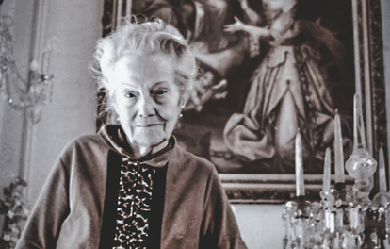
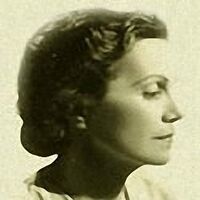
Dulce María Loynaz Muñoz (La Habana, Cuba; 10 de diciembre de 1902-Ibidem; 27 de abril de 1997) fue una escritora cubana, considerada una de las principales figuras de la literatura cubana y universal. Obtuvo el Premio Miguel de Cervantes en 1992. Publicó sus primeros poemas en La Nación, en 1920, año en que también visitó los Estados Unidos. A partir de esa fecha realizó numerosos viajes por Norteamérica y casi toda Europa, incluyendo visitas a Turquía, Siria, Libia, Palestina y Egipto. Visitó México en 1937, varios países de Sudamérica entre 1946 y 1947 y las Islas Canarias en 1947 y 1951, donde fue declarada hija adoptiva.
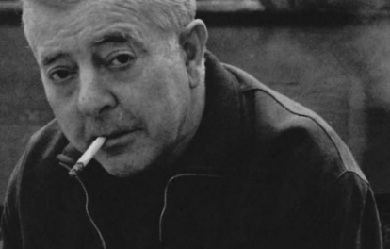
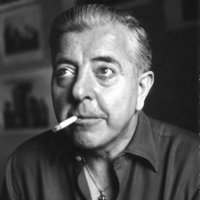
Jacques Prévert est un poète, scénaristeet artiste français, né le 4 février 1900 à Neuilly-sur-Seine, et mort le 11 avril 1977 à Omonville-la-Petite (Manche). Auteur de recueils de poèmes, parmi lesquels Paroles (1946), il devint un poète populaire grâce à son langage familier et à ses jeux sur les mots. Ses poèmes sont depuis lors célèbres dans le monde francophone et massivement appris dans les écoles françaises. Il a écrit des sketchs et des chœurs parlés pour le théâtre, des chansons, des scénarios et des dialogues pour le cinéma où il est un des artisans du réalisme poétique. Il a également réalisé de nombreux collages à partir des années 1940.
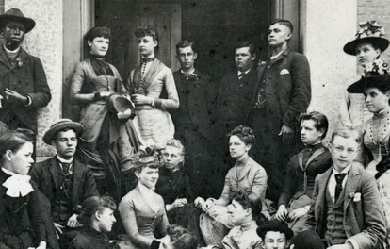
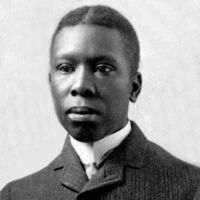
Paul Laurence Dunbar was the first African-American poet to garner national critical acclaim. Born in Dayton, Ohio, in 1872, Dunbar penned a large body of dialect poems, standard English poems, essays, novels and short stories before he died at the age of 33. His work often addressed the difficulties encountered by members of his race and the efforts of African-Americans to achieve equality in America. He was praised both by the prominent literary critics of his time and his literary contemporaries. Dunbar was born on June 27, 1872, to Matilda and Joshua Dunbar, both natives of Kentucky. His mother was a former slave and his father had escaped from slavery and served in the 55th Massachusetts Infantry Regiment and the 5th Massachusetts Colored Cavalry Regiment during the Civil War. Matilda and Joshua had two children before separating in 1874. Matilda also had two children from a previous marriage. The family was poor, and after Joshua left, Matilda supported her children by working in Dayton as a washerwoman. One of the families she worked for was the family of Orville and Wilbur Wright, with whom her son attended Dayton's Central High School. Though the Dunbar family had little material wealth, Matilda, always a great support to Dunbar as his literary stature grew, taught her children a love of songs and storytelling. Having heard poems read by the family she worked for when she was a slave, Matilda loved poetry and encouraged her children to read. Dunbar was inspired by his mother, and he began reciting and writing poetry as early as age 6. Dunbar was the only African-American in his class at Dayton Central High, and while he often had difficulty finding employment because of his race, he rose to great heights in school. He was a member of the debating society, editor of the school paper and president of the school's literary society. He also wrote for Dayton community newspapers. He worked as an elevator operator in Dayton's Callahan Building until he established himself locally and nationally as a writer. He published an African-American newsletter in Dayton, the Dayton Tattler, with help from the Wright brothers. His first public reading was on his birthday in 1892. A former teacher arranged for him to give the welcoming address to the Western Association of Writers when the organization met in Dayton. James Newton Matthews became a friend of Dunbar's and wrote to an Illinois paper praising Dunbar's work. The letter was reprinted in several papers across the country, and the accolade drew regional attention to Dunbar; James Whitcomb Riley, a poet whose works were written almost entirely in dialect, read Matthew's letter and acquainted himself with Dunbar's work. With literary figures beginning to take notice, Dunbar decided to publish a book of poems. Oak and Ivy, his first collection, was published in 1892. Though his book was received well locally, Dunbar still had to work as an elevator operator to help pay off his debt to his publisher. He sold his book for a dollar to people who rode the elevator. As more people came in contact with his work, however, his reputation spread. In 1893, he was invited to recite at the World's Fair, where he met Frederick Douglass, the renowned abolitionist who rose from slavery to political and literary prominence in America. Douglass called Dunbar "the most promising young colored man in America." Dunbar moved to Toledo, Ohio, in 1895, with help from attorney Charles A. Thatcher and psychiatrist Henry A. Tobey. Both were fans of Dunbar's work, and they arranged for him to recite his poems at local libraries and literary gatherings. Tobey and Thatcher also funded the publication of Dunbar's second book, Majors and Minors. It was Dunbar's second book that propelled him to national fame. William Dean Howells, a novelist and widely respected literary critic who edited Harper's Weekly, praised Dunbar's book in one of his weekly columns and launched Dunbar's name into the most respected literary circles across the country. A New York publishing firm, Dodd Mead and Co., combined Dunbar's first two books and published them as Lyrics of a Lowly Life. The book included an introduction written by Howells. In 1897, Dunbar traveled to England to recite his works on the London literary circuit. His national fame had spilled across the Atlantic. After returning from England, Dunbar married Alice Ruth Moore, a young writer, teacher and proponent of racial and gender equality who had a master's degree from Cornell University. Dunbar took a job at the Library of Congress in Washington, D.C. He found the work tiresome, however, and it is believed the library's dust contributed to his worsening case of tuberculosis. He worked there for only a year before quitting to write and recite full time. In 1902, Dunbar and his wife separated. Depression stemming from the end of his marriage and declining health drove him to a dependence on alcohol, which further damaged his health. He continued to write, however. He ultimately produced 12 books of poetry, four books of short stories, a play and five novels. His work appeared in Harper's Weekly, the Sunday Evening Post, the Denver Post, Current Literature and a number of other magazines and journals. He traveled to Colorado and visited his half-brother in Chicago before returning to his mother in Dayton in 1904. He died there on Feb. 9, 1906. Literary style Dunbar's work is known for its colorful language and a conversational tone, with a brilliant rhetorical structure. These traits were well matched to the tune-writing ability of Carrie Jacobs-Bond (1862–1946), with whom he collaborated. Use of dialect Much of Dunbar's work was authored in conventional English, while some was rendered in African-American dialect. Dunbar remained always suspicious that there was something demeaning about the marketability of dialect poems. One interviewer reported that Dunbar told him, "I am tired, so tired of dialect", though he is also quoted as saying, "my natural speech is dialect" and "my love is for the Negro pieces". Though he credited William Dean Howells with promoting his early success, Dunbar was dismayed by his demand that he focus on dialect poetry. Angered that editors refused to print his more traditional poems, he accused Howells of "[doing] my irrevocable harm in the dictum he laid down regarding my dialect verse." Dunbar, however, was continuing a literary tradition that used Negro dialect; his predecessors included Mark Twain, Joel Chandler Harris, and George Washington Cable. Two brief examples of Dunbar's work, the first in standard English and the second in dialect, demonstrate the diversity of the poet's production: (From "Dreams") What dreams we have and how they fly Like rosy clouds across the sky; Of wealth, of fame, of sure success, Of love that comes to cheer and bless; And how they wither, how they fade, The waning wealth, the jilting jade — The fame that for a moment gleams, Then flies forever, — dreams, ah — dreams! (From "A Warm Day In Winter") "Sunshine on de medders, Greenness on de way; Dat's de blessed reason I sing all de day." Look hyeah! What you axing'? What meks me so merry? 'Spect to see me sighin' W'en hit's wa'm in Febawary? List of works * Oak and Ivy (1892) * Majors and Minors (1896) * Lyrics of Lowly Life (1896) * Folks from Dixie (1898) * The Strength of Gideon (1900) * In Old Plantation Days (1903) * The Heart of Happy Hollow (1904) * Lyrics of Sunshine and Shadow (1905) References Paul Laurence Dunbar Website - www.dunbarsite.org/biopld.asp Wikipedia- http://en.wikipedia.org/wiki/Paul_Laurence_Dunbar
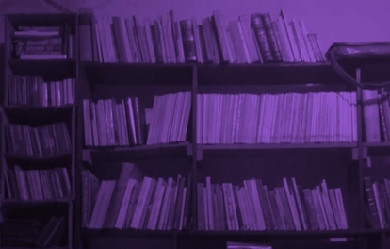

Nací en la Ciudad de México en 1967, año del Señor (equivalente al año cero "pepper" de la "beatlemanía"). Desde muy pequeño mis padres me miraban con preocupación, pues no parecía igual que mi hermano o mis primos. No me gustaban los deportes, las pelotas me llamaban la atención sólo por su condición esférica, pues esta forma geométrica es mi favorita y parece ser que la de Dios también, pues las burbujas y los astros tienden a esa figura enigmática. En lugar de correr tras un balón me pasaba la vida leyendo todo lo que llegaba a mi alcance. En casa no abundaban los libros, así que leía historietas o revistas, de las cuales aún conservo una vasta colección, porque aparte de mi extraño hábito de leer también tengo la costumbre de guardarlo todo. Es probable que mi verdadera vocación sea la de museólogo. Afortunadamente para mi, un vecino, padre de dos amigos de la escuela primaria, era un lector voraz y en tardes memorables me dio mis primeras lecciones de Literatura. Me regaló libros, lo que a mis padres no pareció gustarles mucho. La primera obra literaria que leí en mi vida fue "Tom Sawyer" de Mark Twain, después le seguiría "La cabaña del tío Tom" de Harriet Beecher Stowe. Ahí me di cuenta que los libros pueden cambiar al mundo. Con los años, gracias a las becas tuve la oportunidad de comprar más libros y luego descubriría las Bibliotecas que son para mi lo más cercano al Paraíso. Actualmente vivo en una de ellas, la que he podido conformar en décadas. Es fácil que me encuentren en todo lugar donde se vendan libros viejos ¡Amo ese maravilloso olor del papel añoso! A los doce años mis amigos leídos, no conocidos, me urgieron a escribir. Con un terrible miedo a la página en blanco empecé a hacerlo, para terror de mis amados padres que ya se habían resignado a vivir con mis rarezas, hasta me regalaron una máquina de escribir, que desde luego tengo conmigo todavía, es una Olivetti Lettera 32 y ¡Funciona! El tiempo que transcurre muy a nuestro pesar, ha hecho que se acumulen nueve libros de poemas, tres novelas, una obra de teatro y un guión cinematográfico. Todos pecados míos, guardados bajo llave en un lugar donde no pueden hacer daño a nadie. Lo que se mira en Poeticous es una breve muestra del pasado, cada intento de poema tiene el año en que fue escrito. Además de cosas que no me puedo callar, escritas a partir del 2013. Todos desaliñados como su autor. Los versos de cada poema, están como los dientes de Cervantes: "Mal acondicionados y peor puestos". Si han llegado hasta este punto de mi biografía son ustedes un Monumento a la Paciencia, igual que Job. Cordialmente, Alfredo Jiménez G. Eterno aprendiz de poeta.
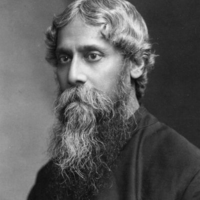
Rabindranath Tagoreα (7 May 1861 – 7 August 1941) was an Indian Bengali polymath who reshaped his region’s literature and music. Author of Gitanjali and its “profoundly sensitive, fresh and beautiful verse”, he became the first non-European to win the Nobel Prize in Literature in 1913. In translation his poetry was viewed as spiritual and mercurial; his seemingly mesmeric personality, flowing hair, and other-worldly dress earned him a prophet-like reputation in the West. His “elegant prose and magical poetry” remain largely unknown outside Bengal.
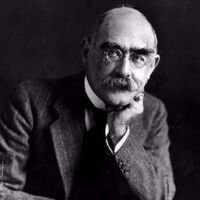
Joseph Rudyard Kipling (30 December 1865 – 18 January 1936) was an English novelist, short-story writer, poet, and journalist. He was born in British India, which inspired much of his work. Kipling was one of the most popular writers in England, in both prose and verse, in the late 19th and early 20th centuries. Henry James said: “Kipling strikes me personally as the most complete man of genius (as distinct from fine intelligence) that I have ever known.”

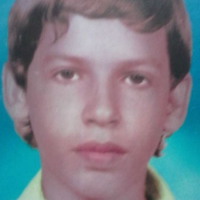
Leopoldo Minaya: poeta, exopoeta*, fabulista y autor de teatro en lengua castellana. Nordeste de la isla de Santo Domingo, o La Española, o Hispaniola (noviembre 15, 1963). América Insular. La presente selección pretende abarcar todas las modalidades poéticas cultivadas por el aeda: lírica, épico-lírica, dramática, aforística, satírica, amatoria, humanística, mística e infantil-juvenil. Se ofrece igualmente una muestra de su prosa en asuntos de interés teológico o de apreciación escritural. Los trabajos literarios de Minaya no pretenden reflejar (ni imponer) criterios personales del autor, imparcial e impasible al través del desarrollo de los textos; antes bien, trasvasan voces verosímiles de entes nominados, eventuales o anónimos... que al manifestarse, afirmar, mediar o contraponerse, permiten que sea al lector a quien corresponda armar los tableros de la Realidad y la ficción, asumiendo que la luz del mundo es (debería ser) la voz de todos, en adición o con simultaneidad a las voces predominantes de intereses instituidos, doctrinas, prejuicios, ignorancias, dogmas, fanatismos, ideologías y esperadas formas de pensamiento... en este universo pródigo y edificante alumbrado por el bien y por la razón del hombre, y oscurecido por el mal y por la sinrazón del hombre". Con inclinación a la experiencia mística, la teodicea, la poesía y la exopoesía*, sus temas remiten a la filosofía existencial, la teología, la jurisprudencia basal, la filosofía política, el texto satírico... y, sobre todo, a la acción teatral, pues el poema es concebido por este autor (en tanto que voz) como obra dramática minimalista, con su escenografía y sus personajes. Comparte los postulados estéticos del movimiento literario Interiorismo -que preconiza el arte trascendente-. Hace vida literaria en el Ateneo Insular de Santo Domingo. ________________ *Exopoesía, exopoema, exopoeta, exopoiesis: términos acuñados y empleados por Leopoldo Minaya para describir la situación espiritual del aeda cuando habla con voz ecuménica y, por tanto, no canta ni se reconoce como instrumento ni como celebrante de potestades terrenales o humanas. La voz del exopoeta, en las veces en que suele verificarse, habla a la humanidad desde fuera del radio de influencia de la misma, según el orden espiritual de las presencias universales. ≈ Bibliografía: [POESÍA] 1) Oscilación de péndulo (poemas de adolescencia, 1977-1981) 2) Preeminencia del tiempo (1983-1989) 3) Preeminencia del tiempo y Otros poemas (1998) 4) La hora llena (2000-2007) 5) Poemas imaginarios (2000-2007) 6) Los cantos sagrados (2019) [LITERATURA JUVENIL] 7) El tiempo niño (1990) 8) Historia del niño René Rosales y de la flauta encantada (1991) 9) Cuento de los dos quijotes (2001 y 2007) 10) Romance nuevo del conde niño (2007) 11) Romance nuevo del pastorcillo (2007) 12) Historia de la doncella que fue a la guerra o Relato del amor y las batallas o Canción de la niña de Portugal, o Nuevo romance de la doncella guerrera (2007 y 2012) 13) Cantar de flor y sombrerito (2007) 14)Leyenda de Puerto Rico (2007) 15)Comedia al pie de la luna, o Tierna canción lunática, o Charada al pie de la luna (2008) 16)La canción de Angelina (2011) [TEOLOGÍA] 17)Dios y los hombres (2021) [SÁTIRA SOCIAL Y HUMANA] 18)El libro de la hormiga (2018) 19)Las inocentes fábulas de Elfa Bulista (2019) [FILOSOFÍA POLÍTICA] 20)Fabulilla de la isla de Santo Domingo o del halcón gerifalte y la zorra mañosa (2019) [FILOSOFÍA EXISTENCIAL Y POLÍTICA] 21)El digesto, o las lecciones del padre [ENSAYO] 22)Bosquejos de ensayos literarios(2020) 23)Nuevos ensayos de ensayos [TEATRO] El digesto Comedia al pie de la luna ————————————————— IMAGEN DEL PERFIL: El poeta, a los 12 años de edad, tiempo en que fue mayor su entusiasmo por la poesía: “...creía entonces que la poesía podía transformar al mundo”. [PÁGINA ADMINISTRADA POR E. SOROKA, con la anuencia del autor de los escritos. Esta página recoge versiones definitivas, últimas y autorizadas de las labores literarias de Leopoldo Minaya, con prelación frente a cualquier otra publicación, en cualquier formato, aun cuando incluyera un aviso similar a este.]

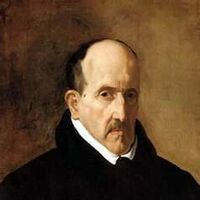
Luis de Góngora y Argote (Córdoba, 11 de julio de 1561 – ibídem, 23 de mayo de 1627) Poeta español. Nacido en el seno de una familia acomodada, estudió en la Universidad de Salamanca. Nombrado racionero en la catedral de Córdoba, desempeñó varias funciones que le brindaron la posibilidad de viajar por España. Su vida disipada y sus composiciones profanas le valieron pronto una amonestación del obispo (1588). Su fama fue enorme durante el Barroco, aunque su prestigio y el conocimiento de su obra decayeron luego hasta bien entrado el siglo XX, cuando la celebración del tercer centenario de su muerte (en 1927) congregó a los mejores poetas y literatos españoles de la época (conocidos desde entonces como la Generación del 27) y supuso su definitiva revalorización crítica.

I'm a highly intelligent, articulate and well-educated human being with an intuitive but enterprising sense of responsibility and a strong moral compass that instinctively demarcates what's right and wrong. Trust, confidentiality and having the courage, regardless of what I do, to formulate and stand by my own personal convictions are key aspects of my life and, unsurprisingly, are also principal characteristics I attach great importance to and naturally expect from those who want to play a meaningful role in my life. I don't suffer fools gladly, in fact not at all and most definitely haven’t got any interest in or time for egotists, time-wasters, attention seekers or the narcissistic. Furthermore, I’m an adult and in my private and professional lives prefer to deal with genuine adults, so anyone who wants to act childishly and thinks they can have any kind of relationship with me, then you’re wrong! And my advice to you in that regard is to go and enrol in a kindergarten as you'll possibly have better luck there. My website is: www.politicoacademic.blogspot.com and my twitter feed if you're interested is: www.twitter.com/DerAkademiker


